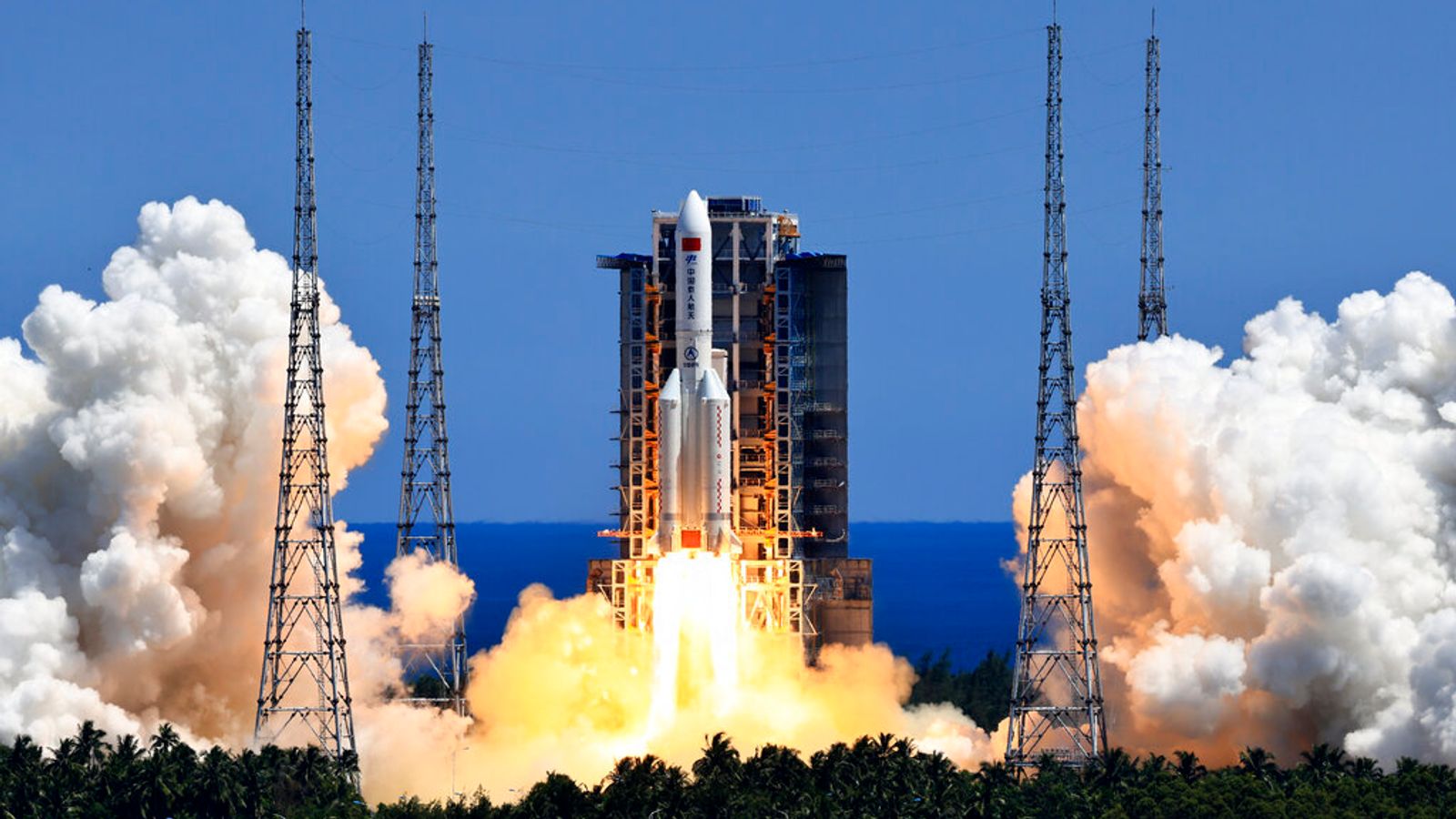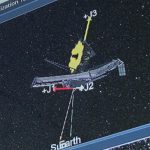Debris from a rocket that boosted part of China’s new space station into orbit has fallen into the sea in the Philippines, the Chinese government has announced.
The China Manned Space Agency said most of the final stage of the Long March-5B rocket burned up after entering the atmosphere.
Earlier the agency had said it planned to allow the booster to fall unguided.
The location of the “landing area” cited by the announcement is in waters southeast of the Philippine city of Puerto Princesa on the island of Palawan.
Philippine authorities did not immediately confirm whether anyone had been affected.
China has previously faced criticism for allowing rocket components to fall back to Earth without being controlled.
Nasa accused Beijing last year of “failing to meet responsible standards regarding their space debris” after parts of a Chinese rocket plummeted into the Indian Ocean.
Fears grow that massive debris from Chinese rocket could crash in populated parts of the US this weekend
China warns US not to ‘play with fire’ over Taiwan during two-hour call between Xi and Biden
Nancy Pelosi’s badly timed Taiwan visit may have the US and China quietly walking into a crisis
The country’s first space station, Tiangong-1, crashed into the Pacific Ocean in 2016 after Beijing confirmed it had lost control. An 18-tonne rocket fell uncontrolled in May 2020.
China also drew disapproval after using a missile to destroy one of its defunct weather satellites in 2007, which generated a field of debris that other governments feared could jeopardise other satellites.
Read more: China launches three astronauts to complete its new space station
The Long March-5B on 24 July, China’s most powerful rocket, carried the Wentian laboratory into orbit on 24 July. It was attached to the Tianhe main module, where three astronauts live, on Monday.
The remains of a separate cargo spacecraft that serviced the station fell into a predetermined area of the South Pacific after most of it burned up on re-entry, the government had already announced.






















